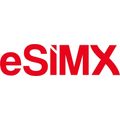Sim Local offre una connettività di viaggio completa attraverso reti locali affidabili in oltre 200 destinazioni. Con prezzi equi, nessun costo di roaming e supporto completo, le sue eSIM offrono chiamate, SMS e numeri locali, proprio come a casa. Con oltre 15 anni di esperienza e una presenza in oltre 100 punti vendita aeroportuali, Sim Local è un esperto di fiducia nella connettività di viaggio.

Sim Local offre una connettività di viaggio completa attraverso reti locali affidabili in oltre 200 destinazioni. Con prezzi equi, nessun costo di roaming e supporto completo, le sue eSIM offrono chiamate, SMS e numeri locali, proprio come a casa. Con oltre 15 anni di esperienza e una presenza in oltre 100 punti vendita aeroportuali, Sim Local è un esperto di fiducia nella connettività di viaggio.
Promo / Codice Coupon
Piani dati eSIM Sim Local per la Nuova Zelanda
Domande frequenti
Sim Local offre eSIM con dati illimitati per la Nuova Zelanda?
Sim Local non fornisce un piano dati ad alta velocità davvero illimitato per la Nuova Zelanda. I piani che riportano “Unlimited” nel nome offrono in realtà 10 GB al giorno per 7 o 15 giorni, dopo i quali la velocità si riduce, quindi sono limitati. Se un viaggiatore ha bisogno di dati ad alta velocità senza tale limite giornaliero, Sim Local offre opzioni a dati fissi come un piano di 20 GB valido per 30 giorni (circa $40.25 USD) o un piano Global di 30 GB sempre valido per 30 giorni (circa $47.00 USD). I piani a dati fissi possono essere più convenienti a meno che l'utente non necessiti di un utilizzo continuo illimitato.
Sim Local offre un eSIM per la Nuova Zelanda con numero di telefono e SMS?
Sim Local non offre piani eSIM della Nuova Zelanda che includano un numero di telefono o la possibilità di inviare SMS. Sono disponibili solo eSIM a uso dati da parte di questo fornitore. Per effettuare chiamate vocali o inviare messaggi durante i viaggi, le popolari app VoIP come WhatsApp, Telegram o iMessage possono essere utilizzate tramite la connessione dati.
Quanti piani dati offre Sim Local per la Nuova Zelanda?
Sim Local offre sette piani a singolo paese e sette piani multi‑paese per la Nuova Zelanda. Il catalogo include due opzioni di limite dati giornaliero, che offrono una piccola quantità di dati ogni giorno, e dodici piani a dati fissi che concedono una quantità di dati stabilita per l’intera durata di validità. I prezzi vanno da circa USD 4.00 per un pacchetto di 500 MB a circa USD 52.25 per un piano da 30 GB, con la validità dei piani che va da un giorno fino a trenta giorni.
Riepilogo con Gen AI. Ultima modifica:




